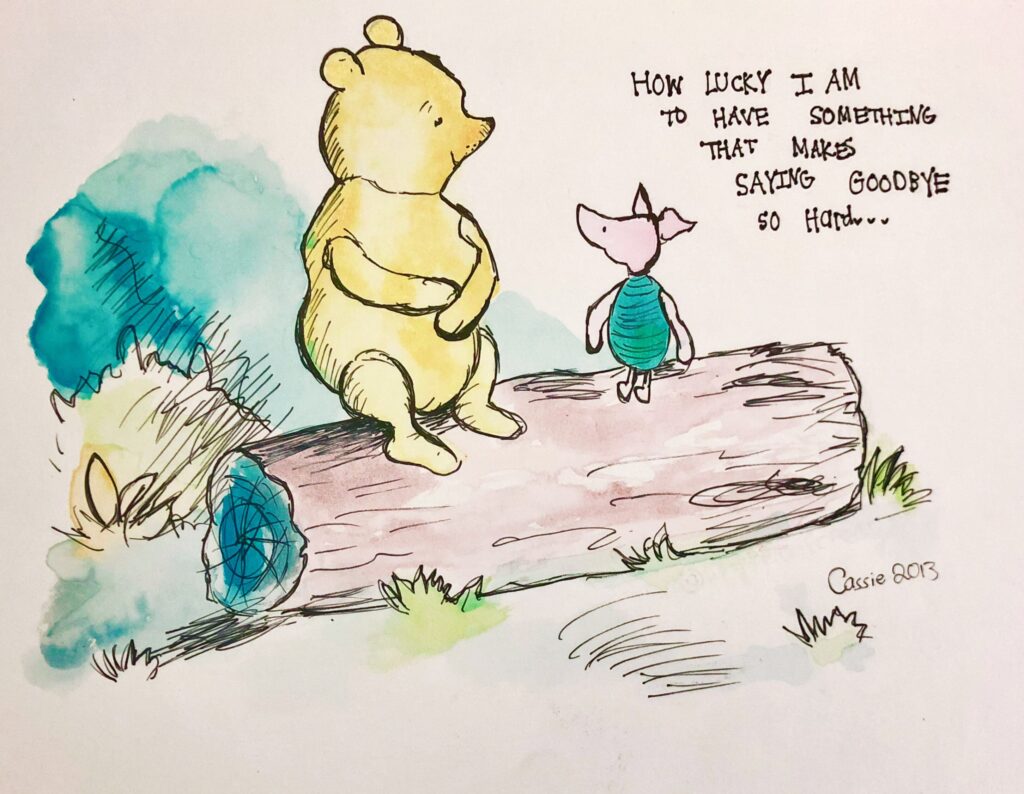Part of me wishes college could last forever. The dorm sleepovers, late-night library hang-outs and chaotic coffee runs. Even the lecture halls hold a kind of charm. There’s a certain beauty to the rhythm of university life. Beyond aesthetics, it’s the final step before entering the adult world. It’s the last time you and your friends share the same calendar, the same milestones, the same breaks and goalposts.
But eventually, everything ends. And with that comes goodbye.

It’s not just a farewell to the school, professors and classes. You’re also saying goodbye to your friends. Some are close. Others are what I’d call “friends of convenience”. That may sound harsh, but it’s honest. These are people you see every day because your schedules align. You bond through routine, not necessarily through deep connection. And once the routine ends, so often does the friendship.
That doesn’t make those friendships less real, and this isn’t unique to college. You’ve had these kinds of relationships in high school, at jobs, summer camps and internships. You will continue to have these relationships throughout your life. Even when built around convenience, those friendships can be meaningful. They can brighten your day, get you through tough mornings or give you a reason to show up just to sit beside someone in class.
When those connections start to fade, it doesn’t mean they weren’t valuable. Sometimes life simply doesn’t allow space to maintain every relationship. And that’s okay.
Even the friendships you cherish most will shift. The closeness you feel while living in the same dorm, eating together every day and sharing every stress is hard to sustain. Eventually, you drift. Maybe not right away. Maybe you’ll live together after graduation or try to keep the same rhythm. But new jobs, routines and people will start to fill your time. The tight-knit group you once built becomes a web of separate paths. There might still be overlap, but there will also be space.
So this goodbye is just the end of a chapter. The story continues, you’re simply turning the page.

In a world where we’re all hyperconnected, physical distance isn’t the challenge it used to be. You can still meet up, plan reunions, send a message when someone crosses your mind. What you’re really saying goodbye to is the ease of it all. The built-in structure that made friendship simple. Letting go of that doesn’t mean losing the people entirely. It just means accepting change.
As I start my senior year, I’m writing this as both reflection and preparation. Part of me wants time to stop, to stay in this space a little longer. But most of me is ready for what’s next. Change is hard, but it’s also what makes life beautiful. It’s what gives this chapter meaning.
So here’s to this final year. I’m choosing to embrace it fully. To give myself grace when I mess up. To appreciate the ease while it’s still here.
Thanks for reading, and goodbye!

By Logan O’Connor
Logan is a rising senior at NYU pursuing degrees in Journalism and Politics. She grew up on Long Island, but always dreamed of living in New York City. When she’s not in class or at her favorite local cafe, you can find her wandering the city (film camera in hand) or baking up a storm in her kitchen.
For over 25 years, the Campus Clipper has helped college students in New York City—and later in Boston and Philadelphia—save money and succeed in city life. We offer a digital coupon booklet with discounts on food, clothing, and services, plus an Official Student Guidebook with real advice on how to navigate college life in a big city. Our internship program lets students build skills, earn money, and publish their own e-books. Follow us on Instagram andTikTok @CampusClipper, and sign up for ournewsletter to get deals straight to your inbox. To access the digital coupons, scan the QR code on our printed card—available in dorms, student centers, and around campus.





















